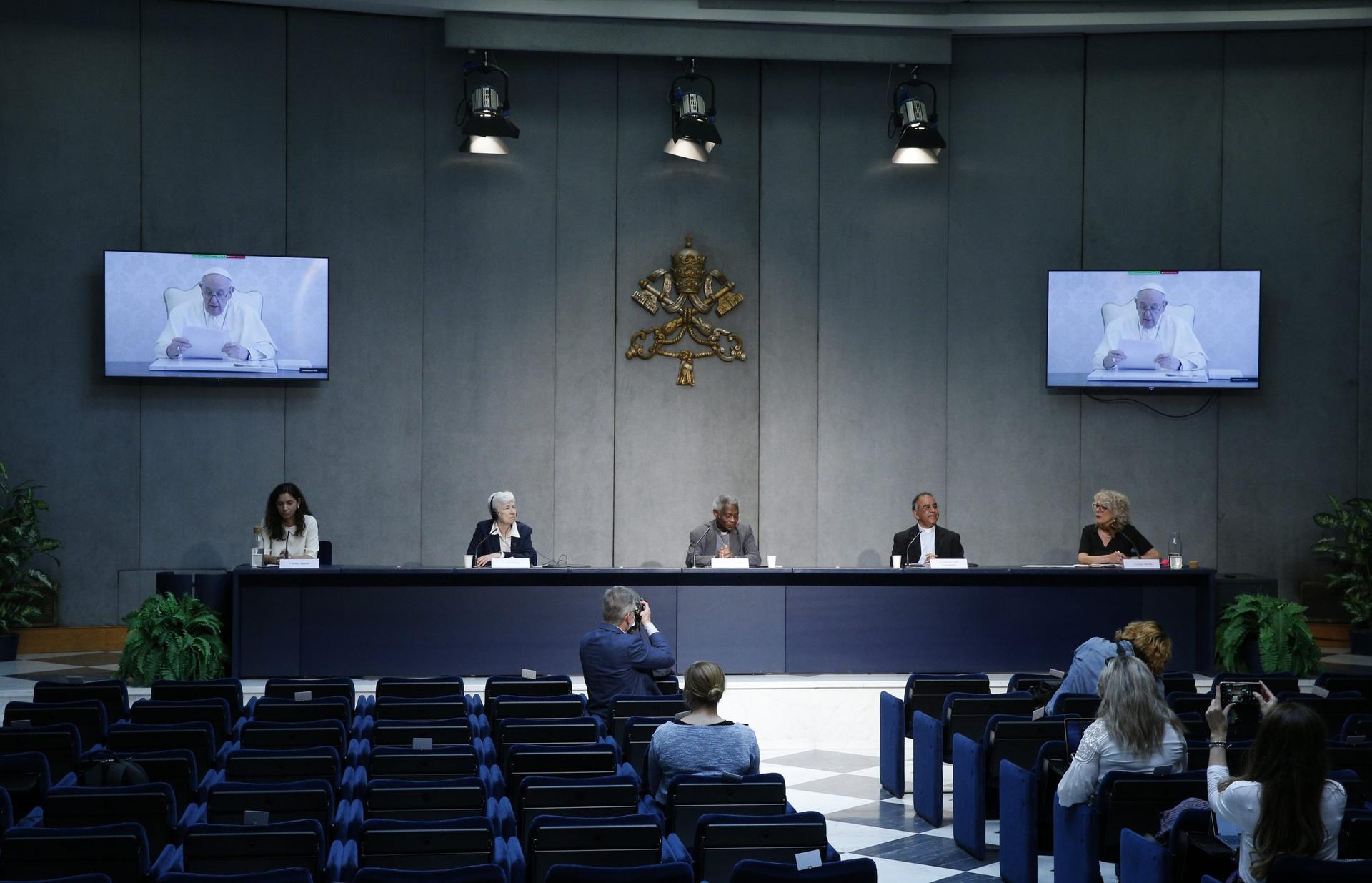ROME – As the Vatican’s special year dedicated to papal eco-encyclical Laudato Si’ comes to a close, they have launched a seven-year action plan designed to encourage strategic actors to commit to achieving total sustainability with Pope Francis’s environmental advocacy as a guide.
In a May 25 video message, Pope Francis called the action plan, called the “Laudato Si’ Action Platform,” a journey “that will see our communities committed in different ways to becoming totally sustainable, in the spirit of integral ecology.”
“For a long time now, this house that hosts us suffers as a result of wounds that we cause by our predatory attitude, which makes us feel that we are masters of the planet and its resources, and authorizes us to make irresponsible use of the goods God has given us,” the pope said, arguing that this attitude has caused an “ecological crisis without precedent.”
The coronavirus pandemic, he said, has not only highlighted the damage done to the planet, but it has also disproportionately impacted the poor, illustrating that “everything is interconnected and interdependent and that our health is not separated from the health of the environment in which we live.”
“We need a new ecological approach,” he said, and called for an integral human ecology “that involves not only environmental questions but also mankind in his entirety” and which is “capable of listening to the cry of the poor and of being leaven for a new society.”
Pope Francis said humanity has a duty to future generations to overcome selfishness, indifference, and “irresponsible” habits, asking faithful to respect creation and “inaugurate a lifestyle and a society that is finally eco-sustainable.”
“We have the opportunity to prepare a better tomorrow for all,” he said, and asked that Catholics around the world get involved in the action plan at seven different levels: the family; parishes and dioceses; schools and universities; hospitals; businesses and farms; organizations, groups, and movements; and religious institutes.
He also outlined seven different goals for the action plan based on Laudato Si’, which he said were “the response to the cry of the Earth, the response to the cry of the poor, the ecological economy, the adoption of a simple way of life, ecological education, ecological spirituality and community engagement.”
Urging people active in all sectors of society to “work together,” the pope insisted that “Only in this way will we be able to create the future we want: a more inclusive, fraternal, peaceful and sustainable world.”
Father Joshtrom Isaac Kureethadam, coordinator of the “Ecology and Creation” office of the Vatican department for Integral Human Development, outlined the different stages in the implementation process, which he said will be a “synodal process.”
Kureethadam said the reason for a 7-year plan is based on the biblical significance of the number seven.
Year one, he said, will be dedicated to planning through community building, resource sharing, and drafting local action plans. The next five years will be dedicated to concrete action, while the last year will be a “sabbatical” year dedicated to “praise and thanking God,” he said.
This process can only be achieved through partnership in the spirit of the “the synodal path to which Pope Francis is inviting the whole of humanity,” Kureethadam said, saying the next seven years “will be a synodal journey, working together.”
In his video message, Pope Francis said “there is hope” for the environment despite the damage being done.
“We can all collaborate, each one with his own culture and experience, each one with her own initiatives and capacities, so that our mother Earth may be restored to her original beauty and creation may once again shine according to God’s plan,” he said.
Asked whether Pope Francis plans to attend the United Nations COP26 summit on climate, scheduled to take place in Glasgow in November, Ghanaian Cardinal Peter Turkson, head of the Vatican’s office for Integral Human Development, said “We are hoping and we are keeping our fingers crossed.”
The invitation has been sent, Turkson said, noting that Ecumenical Patriarch Bartholomew I of Constantinople, who is a good friend of Pope Francis and shares the pope’s eco-concerns, is planning to attend.
At the moment, the plan is to “synchronize the dates and be there together” with Bartholomew, Turkson said, but cautioned that nothing is set in stone, and plans could still change.









